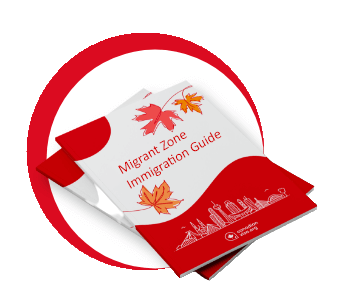Many prospective immigrants to Canada have a difficult time finding the immigration application program that best suits their characteristics and needs.
This is partly because of Canada's stringent and rigorous application process, the over 100 different immigration programs and streams offered by the IRCC, which can confuse, and the vaguely descriptive nature of the criteria applied to the eligibility criteria, which fails to account for alternative skills and competences that are still needed in the Canadian labor market.
The most commonly used work-incentivized immigration visa programs, such as the Express Entry system and Provincial Nominee Programs (PNP), only offer a discrete set of job listings within the scope described within the National Occupational Classification and in-demand occupations in each province.
The consequence of these job listings is that not every possible occupation and vocation is listed. Therefore, the applicants eligible to apply for those jobs using either Express entry or PNP are catered for, leaving a gap in the immigration market for certain obscure but much-needed foreign labor work skills.
Immigration, Refugees and Citizenship Canada (IRCC), recognizing the need to address the gap in the immigration labor market, has outlined immigration visa programs for low/minimum skilled foreign labor. A prominent example among these is the Caregiver Visa program.
Canada, like most highly developed countries, is plagued with the problem of an aging population. This statistic, combined with decreasing birth rates below the population replacement rate and young people's ever-increasing aversion to marriage and labor-intensive jobs, has resulted in high demand for foreign workers in the caregiving industry.
Although providing an essential service in the form of caregiving for infirm and elderly people, the Caregiver Visa has been rarely patronized in recent years, so as a means to renew interest in the immigration program, the Live-in Caregiver Program was canceled, and it was replaced by two brand new immigration pilots called the Home Care Provider Pilots.
Home Child Care Provider Pilot and Home Support Worker Pilot

Home caregivers qualified to care for children, the elderly, or people with disabilities in private homes without supervision must meet specific requirements to be eligible for the Home Care Provider Pilots in Canada. These requirements include:
A Canadian Employers’ Positive Labour Market Impact Assessment (LMIA)
Before an employer can hire a caregiver, he or she must:
- Apply to Employment and Social Development Canada/Service Canada (ESDC/SC) to have his or her suggested job offer reviewed; and
- Receive a positive Labour Market Impact Assessment (LMIA) from the ESDC/SC
The ESDC/SC will assess the employer's job offer and the employment contract to ensure it meets specific requirements. This includes an assessment of wages, working conditions, provincial labor, and employment standards.
The assessment must prove that not enough Canadians or permanent residents are currently available to work as live-in caregivers in Canada. If the ESDC/SC finds the job offer acceptable, they will issue a positive LMIA to the employer.
A Written Contract From the Future Employer, Signed by the Employee and the Employer

The employee and the employer must legally sign a written employment contract. The employee must submit the signed contract with a work permit application, which is the same employment contract submitted to the ESDC/SC by the employer. The only time they can be different is if there is a good reason, for example, a new start date.
A Successful Completion of the Equivalent of a Canadian Secondary School Education
The employee (caregiver) must have completed the equivalence of Canadian High School education (secondary school). Because of the vast difference in schooling systems across Canada, it is impossible to give a precise number of years needed.
However, in most provinces in Canada, it takes twelve years of schooling to obtain a Canadian high school diploma. The immigration officer assessing your application will let you know what is needed.
Work Experience as a Caregiver or Role in a Related Field or Occupation
You are required to have at least six months of training or at least one year of full-time paid work experience as a caregiver or role in a related field or occupation. Six months of your work experience must be continuous employment with one employer.
This experience must also have been acquired within the three years before the day on which the caregiver makes an application for the work permit as a caregiver.
Good Knowledge of English or French
The caregiver must be able to speak, read and understand either English or French so that they can function on their own in the employers' home. For example, the caregiver must be able to call emergency services if they are needed and understand the labels on medications because the caregiver will be unsupervised for most of the day.
The Canadian Language Benchmark is a descriptive scale of language ability in the English language. It puts forward the presentation of a benchmark for assessing the language proficiency of non-native speakers of English. It is used extensively by Immigration, Refugees, and Citizenship Canada to assess language skills for immigration purposes. A CLB is required to apply for all major Canadian immigration programs.
CLB organizes assessments for the International English Language Testing System (IELTS), the most common test to prove one’s language proficiency in English.
Get a Work Permit Before you Enter Canada

To be on a Home Child Care Provider Pilot or the Home Support Worker Pilot, you must apply for an initial home caregiver work permit at a visa office outside of Canada. If the application is successful, you will receive a letter of introduction from the Canadian visa office responsible for the area in which you live.
Upon arrival in Canada, you will need to present this letter to the Border Services Officer to obtain your work permit.
How We Can Help you to Move to Canada on a Caregiver Visa

Do you want to come to Canada? At migrantzone.com, we make applying for your visa simple. By using our accredited Regulated Canadian Immigration Consultants (RCICs), you will not only improve your chances of success in the visa application process, but you will get expert advice based on your specific needs.
Our RCICs are highly qualified and are granted permission by the College of Immigration and Citizenship Consultants (CICC) to assist you with your eligibility evaluation, review all your documents and application forms, and submit them to the Canadian government for you.
For professional help and guidance, put your visa application in the trusted hands of our student advisors and certified visa professionals. Our team of dedicated student advisors can provide excellent options for designated learning institutions that suit your budget and career goals and even guide you through the enrollment process to obtain your letter of acceptance.
Why take the chance of having your application denied because your forms are incorrect or sent in too late? Let us take care of all the fine print while you plan your move to Canada.
FAQs
Can you Immigrate to Canada as a Home Care Provider Using the Express Entry System?
The Express Entry system does not cater to home care providers in its Federal Economic Immigration programs. However, via the Canadian Experience Class one year minimum work experience in Canada eligibility criteria, you can apply for it.
Can you Immigrate to Canada as a Home Care Provider Using the Provincial Nominee Program?
Each Canadian province has a definite but fluid list of in-demand occupations that homecare providers can consult to see if they are eligible to apply.
What is the Average Income for a Homecare Provider in Canada?
The average salary of Home Care Providers in Canada is $31,408.




